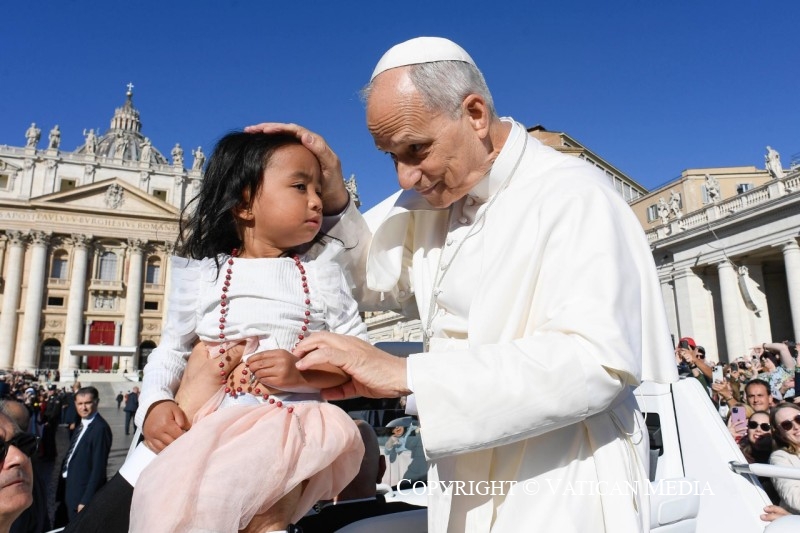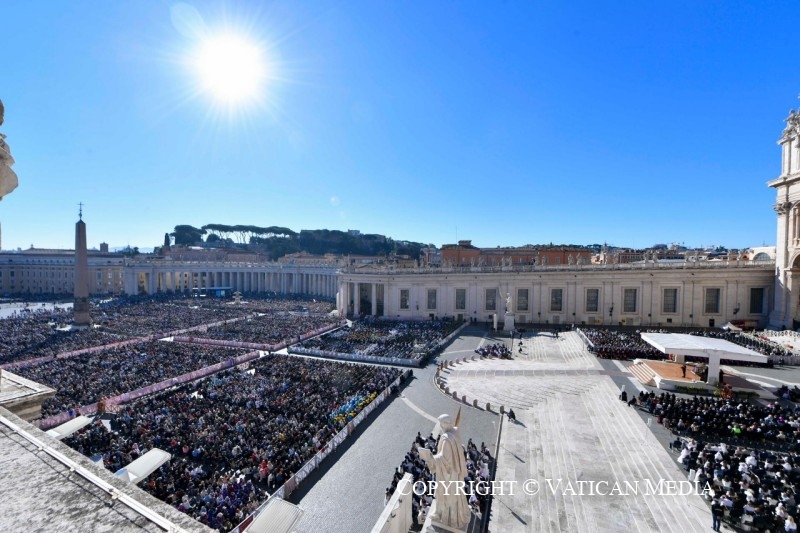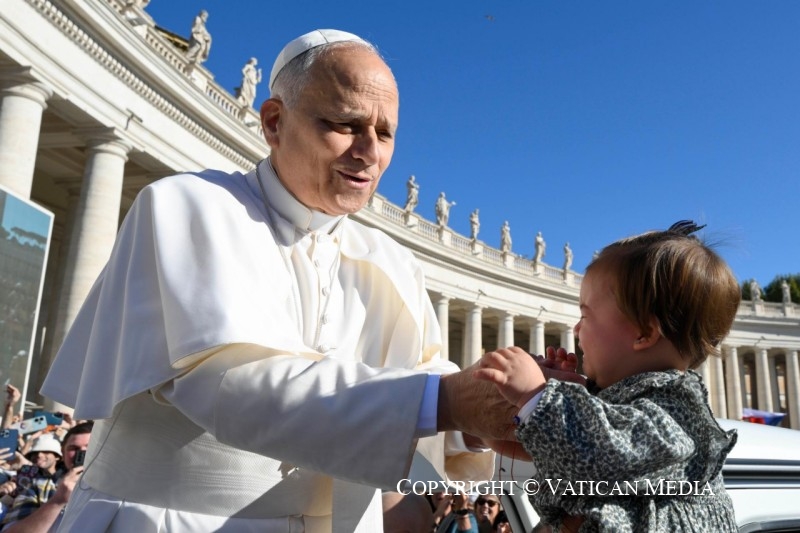Cycle of Catechesis – Jubilee 2025. Jesus Christ our Hope. 10. Rekindling. “Were not our hearts burning within us?” (Lk 24:32)
Dear brothers and sisters, good morning!
Today I would like to invite you to reflect on a surprising aspect of Christ’s Resurrection: his humility. If we think back to the Gospel accounts, we realize that the risen Lord does nothing spectacular to impose himself on the faith of his disciples. He does not appear surrounded by hosts of angels, he does not perform spectacular feats, he does not deliver solemn speeches to reveal the secrets of the universe. On the contrary, he approaches discreetly, like any other wayfarer, like a hungry man asking to share some bread (cf. Lk 24:15, 41).
Mary Magdalene mistakes him for a gardener (cf. Jn 20:15). The disciples of Emmaus believe him to be a stranger (cf. Lk 24:18). Peter and the other fishermen think he is just a passer-by (cf. Jn 21:4). We would have expected special effects, signs of power, overwhelming evidence. But the Lord does not seek this: he prefers the language of proximity, of normality, of sharing a meal.

Brothers and sisters, there is a valuable message in this: the Resurrection is not a theatrical coup; it is a silent transformation that fills every human gesture with meaning. The risen Jesus eats a piece of fish in front of his disciples: this is not a marginal detail, it is confirmation that our body, our history, our relationships are not a shell to be thrown away. They are destined for the fullness of life. Resurrection does not mean becoming evanescent spirits, but entering into a deeper communion with God and with our brothers and sisters, in a humanity transfigured by love.
In the Pasch of Christ, everything can become grace. Even the most ordinary things: eating, working, waiting, taking care of the house, supporting a friend. The Resurrection does not remove life from time and effort, but changes its meaning and “flavour”. Every gesture performed in gratitude and communion anticipates the Kingdom of God.
However, there is an obstacle that often prevents us from recognizing Christ’s presence in our daily lives: the assumption that joy must be free from suffering. The disciples of Emmaus walk sadly because they hoped for a different ending, for a Messiah who did not know the cross. Although they have heard that the tomb is empty, they cannot smile. But Jesus walks alongside them and patiently helps them understand that pain is not the denial of the promise, but the way through which God has manifested the measure of his love (cf. Lk 24:13-27).

When they are finally seated at the table with him and break bread, their eyes are opened. They realize that their hearts were already burning, even though they did not know it (cf. Lk 24:28-32). This is the greatest surprise: to discover that beneath the ashes of disenchantment and weariness there is always a living ember, waiting only to be rekindled.
Brothers and sisters, Christ’s resurrection teaches us that no history is so marked by disappointment or sin that it cannot be visited by hope. No fall is definitive, no night is eternal, no wound is destined to remain open forever. However distant, lost or unworthy we may feel, there is no distance that can extinguish the unfailing power of God’s love.
Sometimes we think that the Lord comes to visit us only in moments of contemplation or spiritual fervour, when we feel worthy, when our lives appear orderly and bright. Instead, the Risen One is close to us precisely in the darkest places: in our failures, in our frayed relationships, in the daily struggles that weigh on our shoulders, in the doubts that discourage us. Nothing that we are, no fragment of our existence, is foreign to him.

Today, the risen Lord walks alongside each of us, as we travel our paths – those of work and commitment, but also those of suffering and loneliness – and with infinite delicacy asks us to let him warm our hearts. He does not impose himself loudly; he does not demand to be recognized immediately. He waits patiently for the moment when our eyes will open to see his friendly face, capable of transforming disappointment into hopeful expectation, sadness into gratitude, resignation into hope.
The Risen One desires only to manifest his presence, to become our companion on the road and to kindle in us the certainty that his life is stronger than any death. Let us then ask for the grace to recognize his humble and discreet presence, not to expect a life without trials, to discover that every pain, if inhabited by love, can become a place of communion.
And so, like the disciples of Emmaus, we too return to our homes with hearts burning with joy. A simple joy that does not erase wounds, but illuminates them. A joy that comes from the certainty that the Lord is alive, walks with us, and gives us the possibility to start again at every moment.
Source: vatican.va





